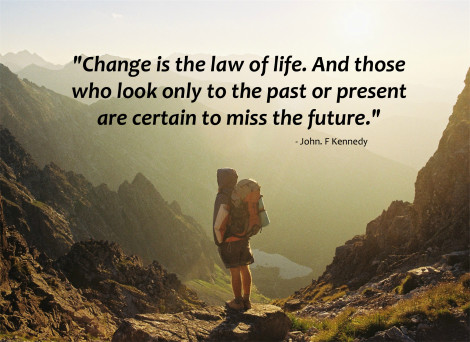
Less than one hour without wi-fi makes most of us lapse into a form of digital amnesia – forgetting that our computers and devices can still work without it. For jet junkies, the internet has revolutionsed travel.
Storage on smartphones and tablets has removed the need to carry bulky itineraries, tickets, bookings, maps and guidebooks. Finding accommodation and booking transfers or activities now takes little more time than connecting to a local signal.
Except if you’re travelling through Africa …
Navigating the developing world offline is an art form. Here are our top tricks for finding secret WiFi hotspots, as well as the best apps to make this uncomfortable digital narrative less traumatic.
Five phases of wi-fi mourning
1. Denial and isolation
When faced with substantial connectivity issues, our first reaction is to deny the reality of the situation. It’s a standard defence mechanism to cope with the shock of not having immediate access to the internet.
The crushing truth is that, in most African countries, a reliable high-speed internet connection is about as common as a purple carrot. No matter how much time you spend convincing yourself otherwise, your social network is now isolated to just you and your trusty travel buddy.

The reasons for Africa’s ongoing connectivity problems are numerous and complex. R. Les Cottrell provides an excellent analysis of the main issues.
2. Anger
As the effects of denial fade, the reality of the situation will begin to seep in. You may find yourself irrationally directing anger towards strangers, friends or even inanimate objects. Learn to suppress the rage and embrace the limitations of your new environment.
Nowadays cafes or restaurants advertising FREE WI-FI are easy to find in most Southern African cities.
Most cafes have a daily data allowance from local internet service providers and apportion this equally among tables.
Data packages, especially in countries such as Botswana are very expensive so, while you may be able to access wi-fi at your table, you will be assigned a quota that cuts out immediately once it has been reached.
To prevent network abuse, cafes and restaurants have internet usage restrictions that range from
30 minutes or 50MB to 2 hours or 200MB – whichever comes first.
At certain hotspots, you may not be able to access wi-fi because the total daily data limit has already been exceeded by the restaurant (or the internet may be down citywide). A rolling blackout or load shedding is another likely cause.
To increase your chances of getting connected, ask whether wi-fi is available at your table and how much data allowance you will receive before being seated. You can then plan your time effectively.
3. Bargaining
Other common reactions to sudden and diminished access to the internet are feelings of helplessness and anxiety. You may experience an overwhelming need to regain control.
Compulsive phone checks (for available networks) and furtive attempts to guess the wi-fi passwords of strangers are common manifestations of this phase. The good news is that there is hope.
Many large chain cafes and restaurants provide stable connections through a local carrier called AlwaysOn.
The top food and internet hotspots across Southern Africa (including South Africa, Botswana, Namibia, Zambia and Zimbabwe) include:
Most wi-fi networks are password protected and available at your table on request.
Hotels such as CityLodge Hotels, Sun International, Tsogo Sun Hotels and Protea Hotels also offer complimentary wi-fi access. A daily data limit usually ranges between 100MB and 500MB.
Smaller establishments are sometimes prone to weaker and unstable internet connections meaning that your connection can drop out multiple times during a session. Be wary if you are working in the cloud because your data may not be saved.
A number of apps can locate free wi-fi hotspots but sometimes it’s worthwhile checking electronics stores like Incredible Connection that use (often unprotected) wi-fi networks for their display items.
4. Depression
Avoid this stage altogether by investing in a local SIM card with a data plan.
If you are arriving in South Africa, purchase a SIM at the airport as soon as you land since airport vendors are less restrictive about foreigners buying SIM cards. In most South African tech stores it is very difficult to purchase a SIM if you are a non-citizen and do not have a local ID.
Ensure that your phone is unlocked from your Australian carrier or it will not work with a foreign SIM.
The most trusted phone carriers with the best coverage and speeds include:
- Mascom (Botswana)
- Orange (Botswana)
- MTN (Botswana, South Africa, Zambia, Zimbabwe)
- Vodacom (South Africa)
Generally, prepaid credit will not exceed more than between $10-15 depending on the latest currency conversion. The cost of data compared to most Western countries is very expensive. So unless you are prepared to haemorrhage a cool $75 on Youtube, try to keep your data usage to normal web browsing only.
If you can afford it, a SIM card with a large data package gives you the benefit of tethering your phone as a mobile hotspot for laptop and tablet use.
Remember, Africa is not a country; it’s a continent. This means that you will need to repeat this process by buying a new SIM card each time you cross a border.
Like Europe, each country has its own international dialling codes and local phone carriers.
5. Acceptance
The final stage is characterised by social withdrawal. You may even start to experience a sense of calm as your brain adjusts to thinking offline.
The following travel apps are designed for offline usage and slow connections:
- Evernote – store all your files in the cloud (maps, documents, business cards, pdfs, photos and itineraries). Information is synced to all your devices and can be saved for offline viewing. This removes the need for a wi-fi hotspot.
- Firechat – an ‘off the grid’ messaging app that allows you to chat and send photos to people near to you without an internet connection or mobile phone coverage. It works by crowd-sourcing signals from other phones around you.
- WhatsApp – the most reliable way to message friends and family when you’re travelling. It does require an internet connection or 3G network, however, in countries with unstable phone coverage, the overwhelming benefit of WhatsApp lies in being able to see that your message has been delivered to the recipient’s phone.
- Wi-Fi Finder – search for wi-fi networks near you anywhere in the world. Download the offline database in order to locate wi-fi hotspots without a network connection.
- Spotify – download and store music and playlists for offline listening.
O-tip: If you can, travel with an iPad or tablet. An iPad will almost always connect to a slow or unstable internet connection at times where your computer is not able to.
We don’t know why this works, it just does.
Don’t be sad, be smart
Travelling without internet is a singular experience. No one can understand the full spectrum of emotion you will endure and nothing can prepare you for it.
Although coping with limited bandwidth is a challenge, you can achieve surprising results by mapping out your time before connecting, prioritising your tasks and working efficiently.
Further information
- For information about travelling safely throughout Africa and the latest travel advisories visit: Smart Traveller.
- To purchase affordable travel insurance before you leave visit: Worldcare Insurance.
- To book an African adventure visit: G Adventures.
What strategies do you use when travelling without internet? How do you cope with tech-related grief? Tell us in the comments section below!
 Agree? Get informed about legal change that impacts you with our newsletter. You'll automatically receive fresh content each time we publish.
Agree? Get informed about legal change that impacts you with our newsletter. You'll automatically receive fresh content each time we publish.